Well, not quite. At least not yet, and don’t go automatically believing the headlines. You see, the media has been abuzz for the past few days with the exciting news that apparently (and whenever anyone starts a sentence with ‘apparently’ you know what follows is going to be bunkum…) more than one third of Irish car buyers will definitely buy an electric car next time out.
Assuming one third of current Irish buyers of new cars did indeed go out and buy an electric car, straight away, then that would be something in the order of 40,000 electric cars about to suddenly flood onto our roads. Which is not going to happen.
So what’s the real story?
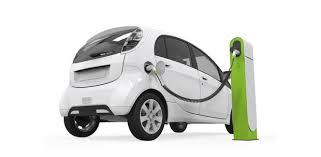 The research was carried out by iReach, an Irish-based market research and analysis company, and 690 buyers and potential buyers were surveyed. Now, that’s not really a sufficient number to make the research scientifically accurate (to be proper, you need to have at least 1,000 respondents in your survey) but credit to iReach, the results are interesting and indeed, 37 per cent of the respondents did say that they plan to buy an electrified car next time out.
The research was carried out by iReach, an Irish-based market research and analysis company, and 690 buyers and potential buyers were surveyed. Now, that’s not really a sufficient number to make the research scientifically accurate (to be proper, you need to have at least 1,000 respondents in your survey) but credit to iReach, the results are interesting and indeed, 37 per cent of the respondents did say that they plan to buy an electrified car next time out.
That’s the key word, though — electrified, not electric. There’s another key word — Toyota, on whose behalf the survey was carried out. Toyota, you might be aware, doesn’t actually have an electric car currently on sale.
Not all electric are the same.
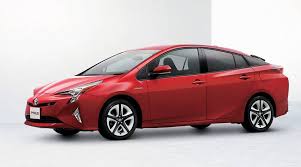 It does have plenty of electrified cars, though, because that’s a word that encompasses cars powered only by batteries AND (emphasis authors’ own) cars with part-electric powertrains. Or, as we more commonly call them, hybrids.
It does have plenty of electrified cars, though, because that’s a word that encompasses cars powered only by batteries AND (emphasis authors’ own) cars with part-electric powertrains. Or, as we more commonly call them, hybrids.
Hybrids have indeed risen in the public interest in the past two years, thanks to a confluence of events. In the first place, there was the Dieselgate scandal, that set us all to thinking and worrying about whether or not we should be buying cars that fuel from the black pump in the first place. Added to which, Toyota (along with such others as Kia, Hyundai, VW, BMW and one or two more) finally broke the magic barrier that allowed hybrid cars to return decent fuel economy in a wide variety of driving environments, and not just when being driven very slowly in town, as was the case with most previous hybrid cars. So, a current Prius can easily break the 60mpg barrier, even when being driven on the motorway, which used to be the very worst thing you could do with a hybrid car.
Hybrid is the most popular choice
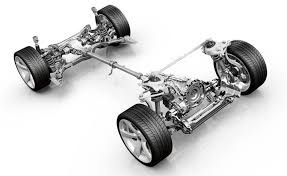 That has meant that hybrids have shot up in most buyer’s estimation, just as diesel has fallen, but people being interested in buying a hybrid does not equate to an electric car revolution, no matter what the headline writers might say.
That has meant that hybrids have shot up in most buyer’s estimation, just as diesel has fallen, but people being interested in buying a hybrid does not equate to an electric car revolution, no matter what the headline writers might say.
Drilling down into the figures, iReach has broken down that 37 per cent figure, and here’s where it becomes rather more interesting. When you do that, it turns out that 26 per cent want to buy a hybrid, four per cent a plugin hybrid, and seven per cent a pure electric, battery-only car.
Does that mean diesel and petrol are dying?
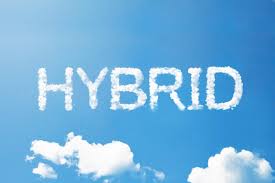 Of course not. 38 per cent of the same survey’s respondents said that they intend to buy a petrol car next, while 25 per cent are still going for diesel.
Of course not. 38 per cent of the same survey’s respondents said that they intend to buy a petrol car next, while 25 per cent are still going for diesel.
The problem is that results such as this, when presented as ‘we’re all rushing to buy electric cars’ create confusion, and confusion does funny (funny-bad, not funny-ha-ha) things to resale values. Diesel values are very definitely fragile right now, as the market tries to find a new level, and competing headlines alternately claim that diesel is dying, or has just been saved by some new technological breakthrough.
None of which makes things any clearer for buyers. The bald fact is that, even by 2025 to 2030, it’s likely that only around one third of the vehicles being bought will be fully electric (according to the aspirations of more than one major car maker). The balance, the majority in fact, will be conventional diesels or petrols, hybrids (or ‘mild hybrids’ — another day’s discussion, perhaps), and increasing numbers of plugin hybrids.
So, for those worrying that the value of their diesel car will fall even further, don’t. Or at least, don’t worry any more than you already were. The continuing weakness of Sterling is having more of an effect on your car’s value (thanks to imports) than electric car sales are. Ditto conventional petrol power.
Will we all, eventually, drive electric cars?
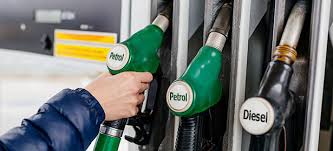 Probably. Almost certainly, in fact, but that day is a way’s off yet. Research indicates that it will be at least 2033 before electric cars become ‘mainstream’ and probably as far away as 2050 before they take over entirely. The revolution is not here just yet.
Probably. Almost certainly, in fact, but that day is a way’s off yet. Research indicates that it will be at least 2033 before electric cars become ‘mainstream’ and probably as far away as 2050 before they take over entirely. The revolution is not here just yet.